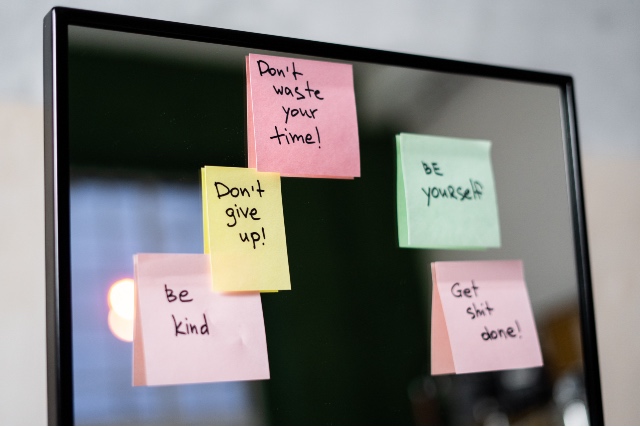2021: Being Realistic about your Expectations
With the beginning of the new year we tend to create a lot of expectations (many times disguised as resolutions) about, basically, everything: 2021 is going to be the year of change, I am going to be more healthy and fitness orientated, I am going to find the love of my life, my business is going to grow, I am going to get that new job that I have been dreaming about, COVID -19 is going to disappear… and then, around this time in January the reality hits, and it hits hard!
In the face of uncertainty in the future, we create scenarios that are sometimes very far from reality. A trip, a new relationship, studies that have just started or a new job. All these situations are uncertain and, therefore, cause people to have different types of expectations about what is to come. The problem arises when expectations are far from reality, and when the difference between what we expect and what actually happens is disproportionate, it directly affects how we will feel and this is when the conflicts appear.
Having expectations is something completely normal and necessary, to a certain extent. By extracting information from our environment and relationships, we make assumptions for the future, providing order to our mind and direction to our actions. If we did not use those previous experiences to anticipate the future, we would be wasting very valuable data and would move blindly.
What should we do then? Not losing sight of the fact that expectations are just that, expectations.
Manage your expectations by identifying what you want or expect but differentiating what depends on your actions and what does not. In those aspects that we can control, it is good to set goals to achieve and work towards them. We must not be passive and just let ourselves be carried away by our beliefs or desires about the future.
In my experience, three “keys” to manage our expectations are:
- Set realistic expectations. One of the main risks occurs when we wait for something to happen that we have no basis to believe will happen. It is important to look at the current situation to extract data that leads to a workable guess.
- Keep flexible thinking. A big problem with expectations is the degree of conviction with which we are sustained and the openness to receive changes. There is no problem being optimistic but to keep in mind that a different outcome is possible and acceptable.
- Remember the importance of learning to tolerate frustration. Even if your expectations are based on real data, even if you are open to the fact that what you expect may not happen. Even in these circumstances reality can generate pain and disappointment if it differs from what is expected. This is when we learn to express and channel our emotions in a constructive way, so that we can learn and continue, instead of suffering.
A real life example: Let’s say that your expectation for the last two years is to incorporate more physical activity in your routine, and your plan of action has been to sign up to a gym. At the end of the year, you realised that your expectation didn’t come true and you feel terrible because you paid for the gym and spent more time watching Netflix than actually going to the gym.
So this year, use what you learned from the previous years and be realistic, gyms are not your thing, you cannot expect a different result doing the same action. Try a new way of being more active, like walking or joining a dance class, and keep flexible and open to try and try until you find something that works for you. But very importantly, remember there are situations that are outside of your control. A pandemic, for example, is not something that you can foresee and as such should not be something you can take the blame for if it impacts on your goals. Analyse the situation and how you feel, and from that create resources or new goals.
Perhaps there are time when our plans do not go as expected or that do not happen in the way we want. If we can analyse, in a broad and flexible way, we can give unexpected situations a constructive meaning where we can appreciate what was learned from the failure to achieve the desired, and thus reformulate the meaning that we give to that experience.
Stay healthy, stay safe!

Recent posts
Identification of the Short & Long-term Goals during the Upbringing of Children
Identification of the Short & Long-term Goals during the Upbringing of Children Raising a child from birth to adulthood is a challenging job,...
Identificación de metas a corto y largo plazo durante la crianza
Identificación de Metas a Corto y Largo Plazo durante la Crianza Acompañar y educar a un niño desde el nacimiento hasta la edad adulta es un camino...
